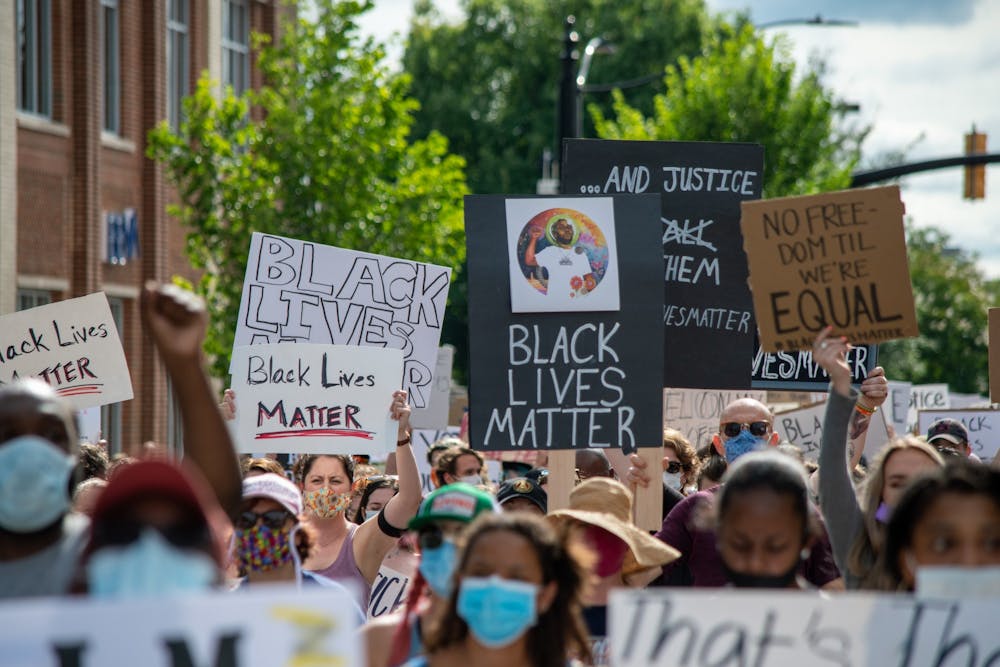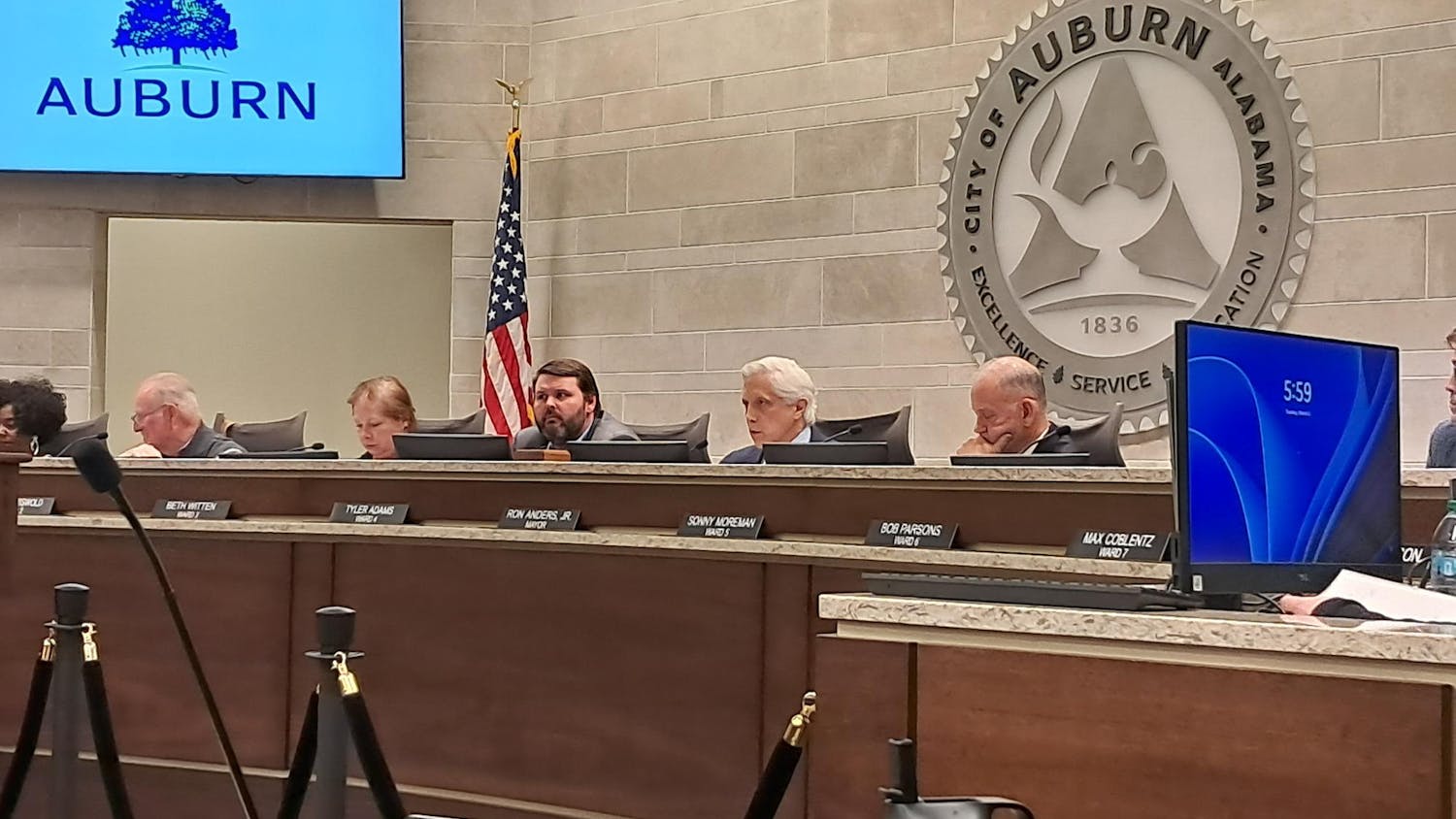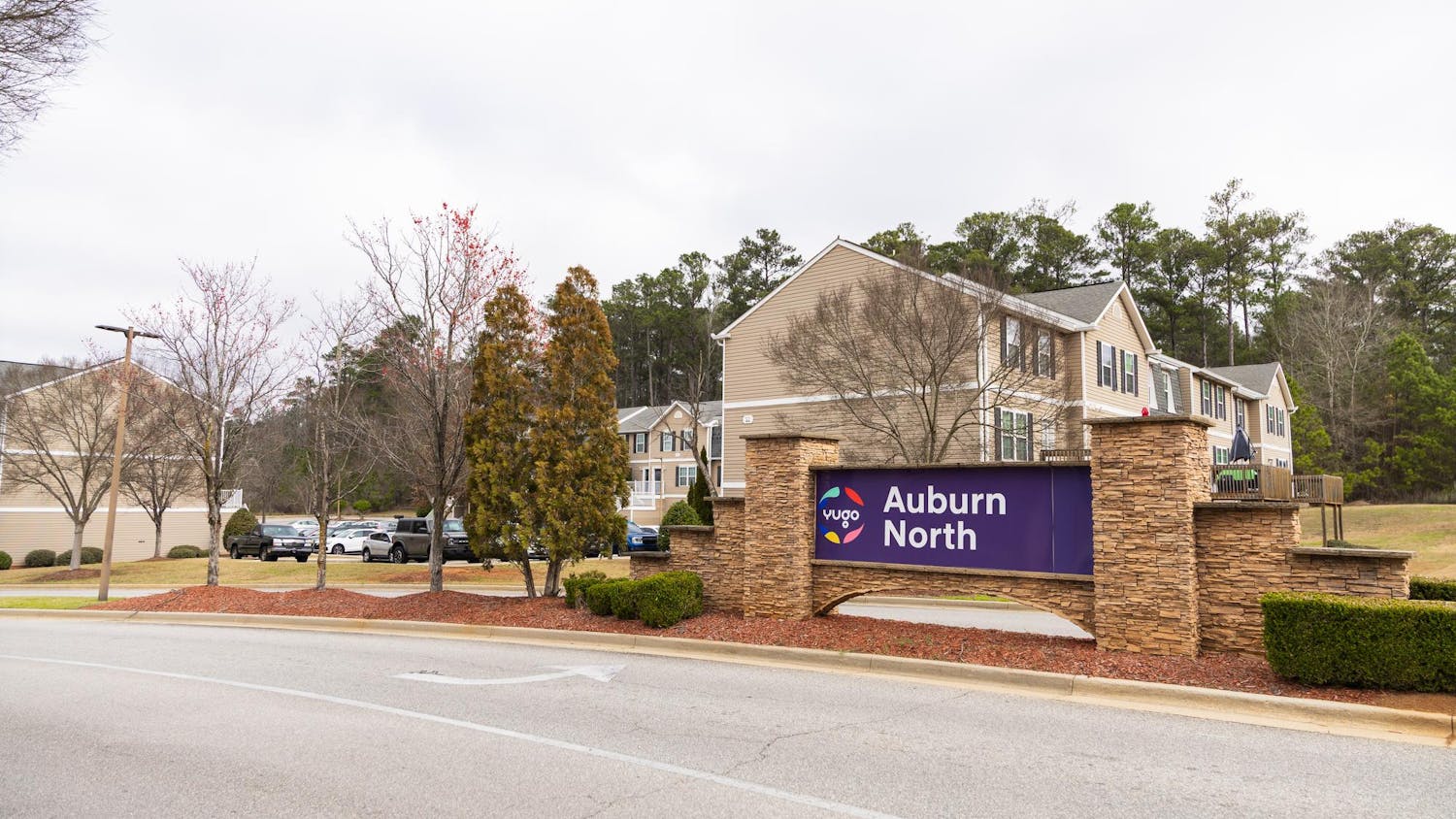On July 31st an Auburn University representative responded to social media posts by a new faculty member, condemning the posts and labeling them as “hate speech” while calling for us to “foster mutual understanding and respect within our communities” during these particular times.
In another response, an Auburn representative stated that the posts were “inexcusable and completely antithetical to the Auburn Creed” and that “Auburn has not and will never support views that exclude or disrespect others, including hateful speech that degrades law enforcement professionals.” Recent letters from students Heather Mann, writing on behalf of Spectrum, and Kayleigh Chalkowski highlight the glaring inconsistencies in the definitions of free speech and hate speech that you utilize in your responses to different incidents in and about our campus.
The swift response to these social media posts demonstrates that you stand ready and prepared to make public announcements to affirm certain groups, just as you have been quick to highlight the “happiness” of certain groups on campus. In contrast, you have failed to respond to acts of racism, homophobia and transphobia on campus. This latest incident tells us that police officers, in your view, are more deserving of affirmation than Black, queer and trans folx and folx at the intersections of those identities.
You have yet to substantively acknowledge or respond to demands about policing of Black students and community members by Auburn Students and Community for Change. More broadly, you have not substantively responded to the Black faculty, students and staff who have shared their experiences with anti-Black racism on and around campus, including experiences with police, on the Black at Auburn account on Instagram.
Viewed collectively, we are concerned with the pattern these University (in)actions reveal, particularly in response to local events and community members. This pattern reflects the longstanding anti-Black ideologies and practices that are and always have been a part of the Auburn landscape.
Adding his voice to a deluge of statements in response to national events, earlier this summer President Gogue released a statement expressing the need for faculty, staff and students at Auburn “be honest with each other and recognize that discrimination against African Americans and other people of color exists and is wrong. There is hate that is festering. We can and must do something about it.” The work of abolitionist scholars and activists is instructive regarding efforts to “do something about it.” Abolitionist movements have called and continue to call for the dismantling of state institutions and practices that are racist and anti-Black, such as chattel slavery, institutions of policing, the prison-industrial complex and the school-prison nexus.
Such movements have deep historical roots in the United States and have contributed to vital legal and societal changes that are oft celebrated as part of narratives of national progress. Labelling contemporary manifestations of abolitionist scholarship, perspectives and movements as “hate speech” reproduces and supports racism, anti-Blackness and white supremacy, naturalizing them as common sense rather than naming and changing them.
Given the nationwide and local movements to examine anti-Black racism and the role of policing, your quick and forceful condemnation of speech critical of law enforcement is particularly troubling. The University must examine its relationships with policing, grapple with the anti-Black origins of the institution of policing — especially in the Deep South — and confront the difficulties and violence contemporary policing creates in and for Black communities.
The University must also directly confront anti-Blackness in and around campus and take explicit steps to affirm, value and sustain the lives and work of Black students, faculty and staff.
As a starting place, we ask that you take up and respond publicly to the following questions:
When a University representative, in response to online outrage about an incoming lecturer’s tweets, asserts that “University officials continue to assess the situation to ensure Auburn remains a campus where mutual respect and understanding is paramount,” of what, by whom and for whom is the University pursuing mutual respect and understanding?
Why was there an immediate and widespread response in affirming the state apparatus of policing when there has been little substantive response to the hurt and terror of Black people in and beyond Auburn University, and little examination of the ways the institution itself is responsible for that hurt and terror?
What is the nature of the University’s relationship with local law enforcement, namely the Auburn Police Division, Opelika Police Department and Lee County Sheriff’s Office?
What are the nature of the financial and other ties in these relationships? And how are these relationships being reconsidered in light of recent national events?
Similarly, in what ways are the practices and structure of Auburn University’s Department of Campus Safety and Security being examined in light of recent national events?
How are faculty of color, particularly Black faculty, supported when they experience harassment on campus?
How are students of color, particularly Black students, supported when they experience harassment on campus?
How are staff of color, particularly Black staff, supported when they experience harassment on campus?
How are those responsible for harassment held to account?
In what ways is the University’s task force on equity and inclusion using scholarship on anti-Blackness, abolition and liberation to inform their work?
Beyond the task force on equity and inclusion, how is the university working to systematically and meaningfully address anti-Black racism in all areas of its operations?
Whose life and work are you invested in affirming, valuing and sustaining? And how are you enacting these investments?
As faculty and staff, we remain committed to working towards the idea of the Auburn Family.
We want to make sure our leaders are too.
Signed,
Carey Andrzejewski
Professor, College of Education
Hannah Baggett
Associate Professor, College of Education
Sara Demoiny
Assistant Professor, College of Education
Kamden K. Strunk, Ph.D.
Associate Professor, College of Education
Mike P. Cook
Associate Professor, College of Education
Evelyn Hunter
Assistant Professor, College of Education
Lisa Simmons
Assistant Professor of Research, College of Education
Ryan Schey
Assistant Professor, College of Education
Wendy Troop-Gordon
Professor, College of Human Sciences
Alicia Carroll
Professor, College of Liberal Arts
Kate Craig
Assistant Professor, College of Liberal Arts
Ivan E. Watts
Associate Professor, College of Education
Anna Bertolet
Professor of English, College of Liberal Arts
Anton DiSclafani
Associate Professor, College of Liberal Arts
Jennifer Brooks
Associate Professor of History, College of Liberal Arts
Claire Wilson
Office of Public Service, University Outreach
Ernest L. Gibson, III
Associate Professor of English; Co-director of Africana Studies
Emily Friedman
Associate Professor of English, College of Liberal Arts
Martina P. McGhee,
Assistant Clinical Professor, College of Education
Diana R Samek
Associate Professor, College of Human Sciences
Arianne Gaetano
Associate Professor, Director of Women Studies
Guy Emerson Mount
Assistant Professor, Department of History
Andrea Kelley
Assistant Professor, Communication and Journalism, College of Liberal Arts
Julia S. Charles
Assistant Professor of English, Office of Public Service, University Outreach
Maiben Beard
College of Liberal Arts
Kelly Kennington
Associate Professor of History, College of Liberal Arts
Crystal Garcia
Assistant Professor of Administration of Higher Education, College of Education
Monique Laney
Associate Professor, Department of History
Maiben Beard
College of Liberal Arts
Elijah Gaddis
Assistant Professor of History, College of Liberal Arts
Leigh Gruwell
Assistant Professor of English, College of Liberal Arts
Rose McLarney
Associate Professor, College of Liberal Arts
Craig E. Bertolet
Professor of English, College of Liberal Arts
Anna Ruth Gatlin
Assistant Professor, College of Human Sciences
Benjamin Fagan
Associate Professor of English, College of Liberal Arts
Charles Lesh
Assistant Professor of English, College of Liberal Arts
Jesús Tirado
Assistant Professor, College of Education
Do you like this story? The Plainsman doesn't accept money from tuition or student fees, and we don't charge a subscription fee. But you can donate to support The Plainsman.





